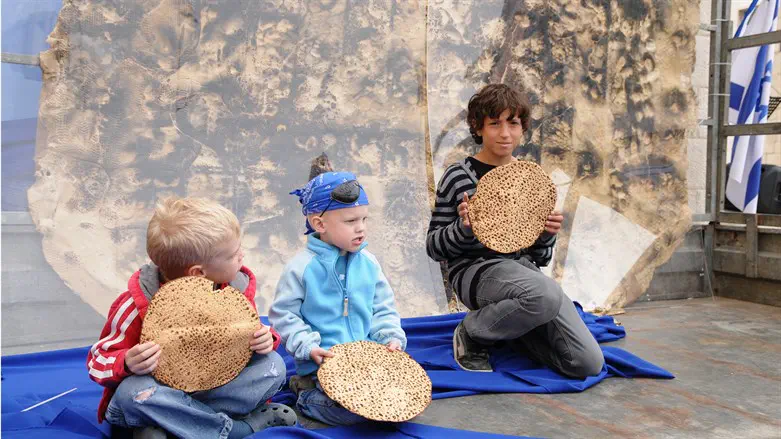
The following is based on Chanan Morrison's piece on Rav Kook's Torah.
The Torah calls the holiday we are about to celebrate, CHAG HAMATZOT. We use that term in our davening, but we call the chag (holiday), Pesach (Passover). There are good reasons for our choice of names, but there is so much to say about this holiday being identified with MATZAH.
After we break the middle matzah, we hold it aloft and declare to all (in the vernacular at the time, in Aramaic), this is the bread of affliction that our ancestors ate in the land of Egypt. This makes matzah a symbol of slavery and oppression.
Towards the end of Magid, we lift that same broken piece of matzah and ask again why we eat it. This time, the matzah is the bread of freedom and the sign of our trust in G-d that He would take us out of Egypt as He had said.
We did not linger (as Lot had and a pre-Pesach Pesach years before) even to prepare proper bread for a journey.
As such, MATZAH is the perfect symbol of the Exodus - from slavery to freedom and the perfect joiner of the meat of the Korban Pesach (the Passover sacrifice) which represents freedom and nobility with the maror (bitter herb) that represents slavery and oppression.
Although Hanukkah and Purim celebrate victories over our enemies, neither holiday includes pondering the pre-Purim and pre-Hanukkah periods when we were far less than joyous. Pesach does. We don't just tell stories about the good parts of the experience; we start with the G'NUT (condemnation) and transit to the SHEVACH (praise).
There is another important distinction between matzah and matzah. At the seder, matzah is obligatory; and that means a mitzvah (commandment) if and when we do it right, but a transgression if we don't.
That essentially can mean that we are motivated to do the mitzvah by YIR'AT HASHEM, fear of G-d, fear of Heaven, fear of sin.
But due to an interesting combination of eat matzah 7 days, eat matzah 6 days, eat matzah in the evening (of the first day), we find that matzah the rest of Pesach is a mitzvah waiting to be fulfilled, but without the obligation and the downside. Motivation to do a mitzvah that we know G-d wants us to do, but will not punish us if we don't, is out of AHAVAT HASHEM, love of G-d.
The Vilna Gaon speaks of the excitement and enthusiasm that one can and should have at every opportunity to fulfill the mitzvah of matzah another time.
Rabbi Gold tells about arguments he has with fellow Jews who don't really see living in Eretz Yisrael as an imperative. They defend their lack of interest in aliyah (immigration to Israel) by claiming that living in Israel is ONLY a mitzva kiyumit (voluntary mitzvah). That's debatable, but Rabbi Gold's reaction is to express joy in being able to do G-d's will voluntarily. Matzah shows us both ways to serve Hashem (G-d).